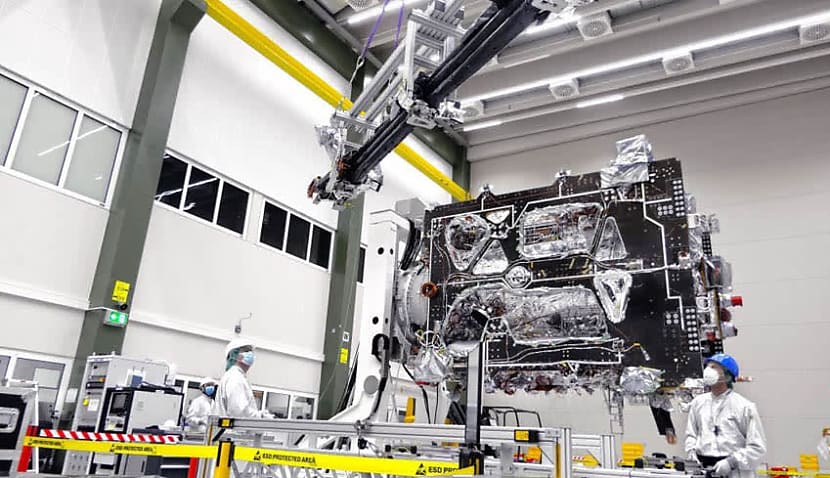The change will see the people shaping space policy and those delivering programs brought under one roof, with clear ministerial oversight and accountability.
The UK Space Agency (UKSA) brand will be retained, but the new unit will be staffed by experts drawn from both organisations, aligning strategy, policy and delivery.
The reforms are part of the government’s broader “Plan for Change”, which is reviewing every arms-length agency with the goal of streamlining operations and boosting efficiency across Whitehall. NHS England, the world’s largest quango, has already been slated for abolition under the same process.
Backing a high-growth industry
Space Minister Sir Chris Bryant said the shake-up would strengthen the UK’s ability to compete globally.
“You don’t need to be a rocket scientist to see the importance of space to the British economy,” he said. “This is a sector that attracts investment, supports tens of thousands of skilled jobs, and underpins nearly a fifth of our GDP through satellite services.”
Minister Bryant said integrating the agency within government would provide “much greater focus” while retaining the scientific expertise and ambition of the sector.
UKSA chief executive Dr Paul Bate also welcomed the change, describing it as a “golden thread” through policy and delivery that would help translate national space ambitions into reality more quickly.
The UK space sector generated at least £2.2 billion (AU$4.59 billion) in investment and revenue in 2024–25, and with the right support, is tipped to capture a quarter of the global market in in-orbit servicing, assembly and manufacturing – a market projected to be worth £2.7 billion (AU$5.64 billion) by 2031.
Industry report on future missions
The announcement coincided with the release of a major report outlining more than 60 recommendations for regulating advanced space missions, including rendezvous and proximity operations (RPO), where spacecraft work in close coordination while in orbit.
The report, delivered by Astroscale, ClearSpace and D-Orbit – in collaboration with the Civil Aviation Authority, UKSA and the Department for Science, Innovation and Technology (DSIT) – highlighted regulatory bottlenecks and proposed solutions to encourage investment in services such as in-orbit refuelling, satellite life extension and debris removal.
Industry leaders said the framework would give investors confidence and help position the UK as a world leader in sustainable space operations.
Nick Shave, managing director of Astroscale UK, said the recommendations “tackle the real bottlenecks industry faces today, providing clarity and confidence investors need”.
ClearSpace UK’s chief operating officer, Rory Holmes, added that the process had helped bridge gaps between government, insurers, regulators and operators.
“The proposals position the UK to become a global leader in this strategically vital domain,” he said.
Towards debris removal by 2028
The report is part of a staged regulatory “sandbox” designed to test rules for new technologies. Stage two is already underway and will focus on the complex challenges unique to RPO missions.
The findings are expected to support the UK’s first active debris removal mission, scheduled for launch by 2028. That mission will demonstrate technology to safely capture and remove defunct satellites – a capability regarded as essential for sustainable access to orbit.
Colin Macleod, head of the Space Regulator at the Civil Aviation Authority, said getting RPO regulations right was vital.
“Operating satellites at thousands of miles per hour in close proximity brings big challenges,” he said. “But done safely, it unlocks new ways of working in space and helps the UK sector grow responsibly.”
Next steps
Further details on the merger of UKSA and DSIT will be announced in coming months. In the meantime, both organisations will continue to work closely with industry to support ongoing missions and investment opportunities.
The reforms mark a significant shift in how Britain manages its space ambitions, with government, regulators and industry now working more closely than ever to ensure the UK plays a leading role in the next phase of the global space race.

